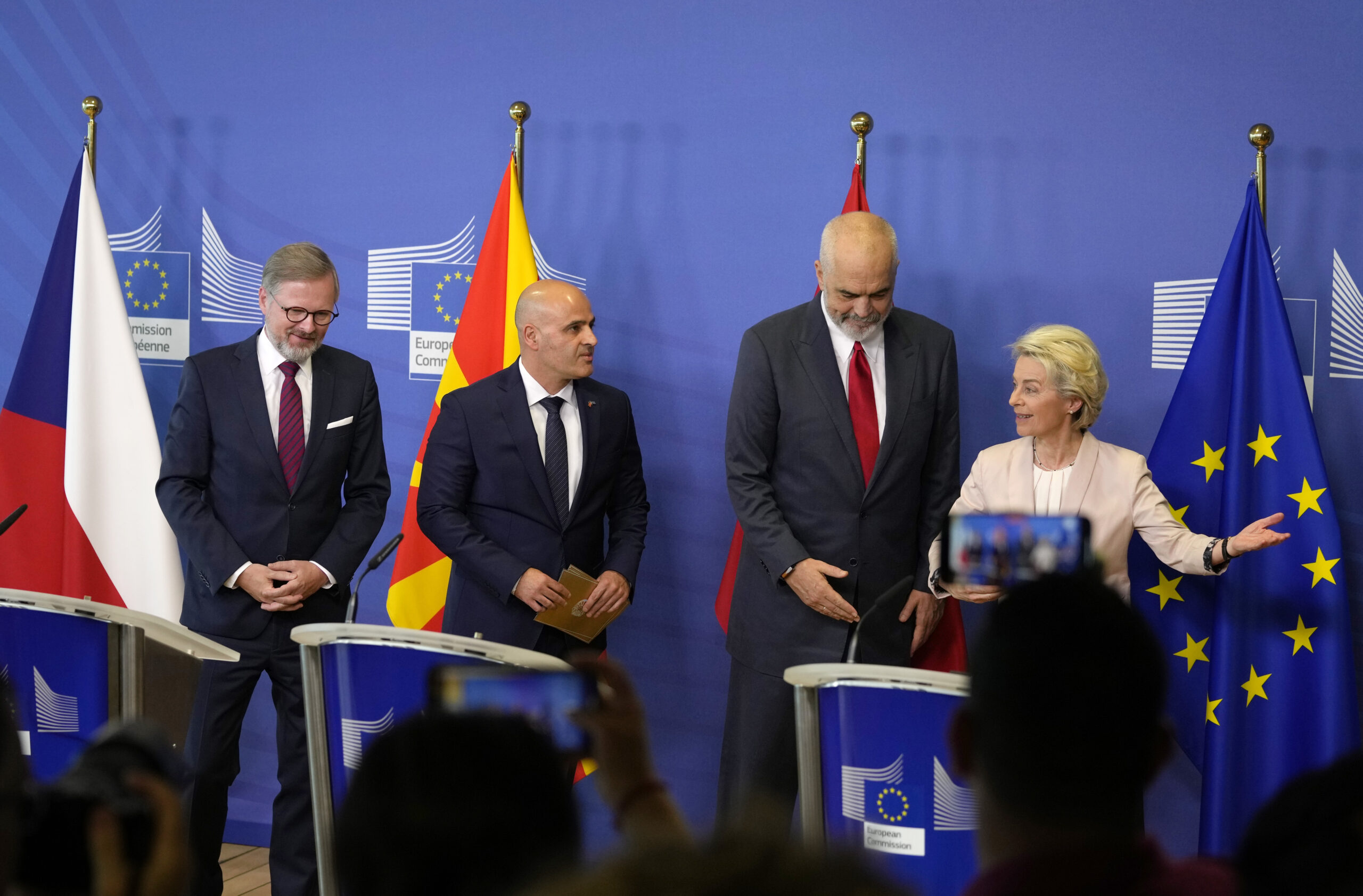Albania to open first cluster of EU accession negotiations on 15 October

The EU Committee of the Permanent Representatives of the Member States (COREPER) unanimously decided on Wednesday to formally open the first cluster of EU accession negotiations with Albania on 15 October, during the second intergovernmental conference with the country. The Ambassadors of the member states approved the European Commission’s Outstanding Benchmarks Assessment Report, which confirmed that Albania has fulfilled all the preconditions set by the EU for opening the first cluster of accession negotiations.
Why is this important:
- Strengthening EU-Albania Relations: Opening the first cluster marks a major milestone in Albania’s EU accession process, strengthening ties with the EU and demonstrating Albania’s commitment to aligning with EU standards.
- Recognition of Reforms: This decision acknowledges Albania’s progress in implementing critical reforms, particularly in areas like rule of law, public administration, and judiciary reforms, which are essential for the country’s path to EU membership.
- Economic and Political Impact: Moving forward with negotiations can attract increased EU investments and funding, offering significant economic benefits and boosting Albania’s international standing.
Context: The formal start of accession talks between the EU and Albania was marked by the first Intergovernmental Conference on 19 July 2022. In July 2022, the European Commission began the screening process, and by July 2023, it submitted the screening report on Cluster 1 – Fundamentals to the Council. This cluster includes key chapters such as Procurement, Statistics, Judiciary and Fundamental Rights, Justice, Freedom and Security, and Financial Control.
Negotiations on each cluster open as a whole once the country meets the required benchmarks. The fundamentals cluster opens first and closes last, determining the overall pace of the negotiations. Progress on these reforms can lead to closer integration with the EU, including accelerated integration, increased investments, and funding.
Greece’s role and Beleri case: The decision to open negotiations was delayed due to Greek objections related to the case of Alfred Beleri. Beleri was arrested in flagrante delicto for vote buying just before local elections and was sentenced to two years in prison. Despite these charges, Greece’s objections persisted until Beleri was released from prison earlier this month, which helped pave the way for unanimous approval by the EU ambassadors.
Next Steps: The second intergovernmental conference on 15 October will officially open Cluster 1 – Fundamentals, which will focus on essential reforms related to the rule of law. A further conference is planned for mid-December, signaling continued progress in Albania’s EU accession process.


